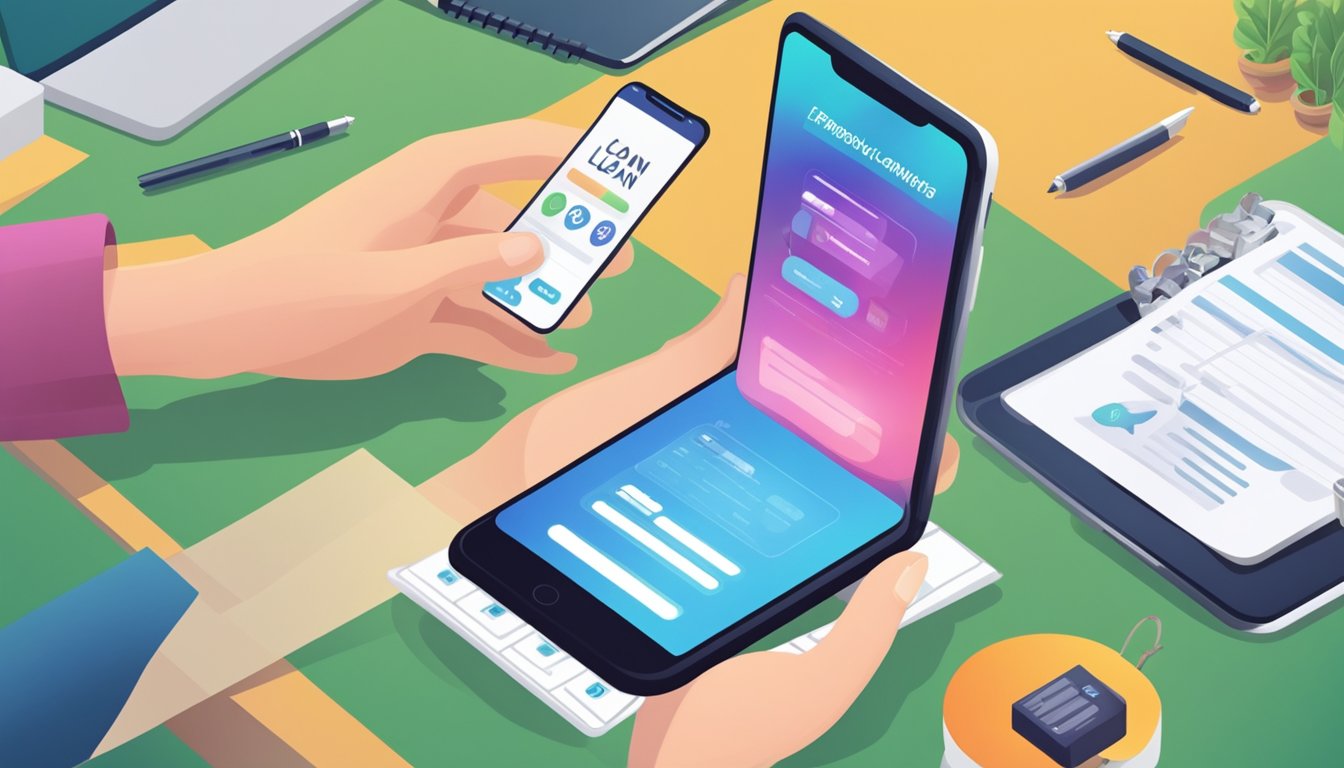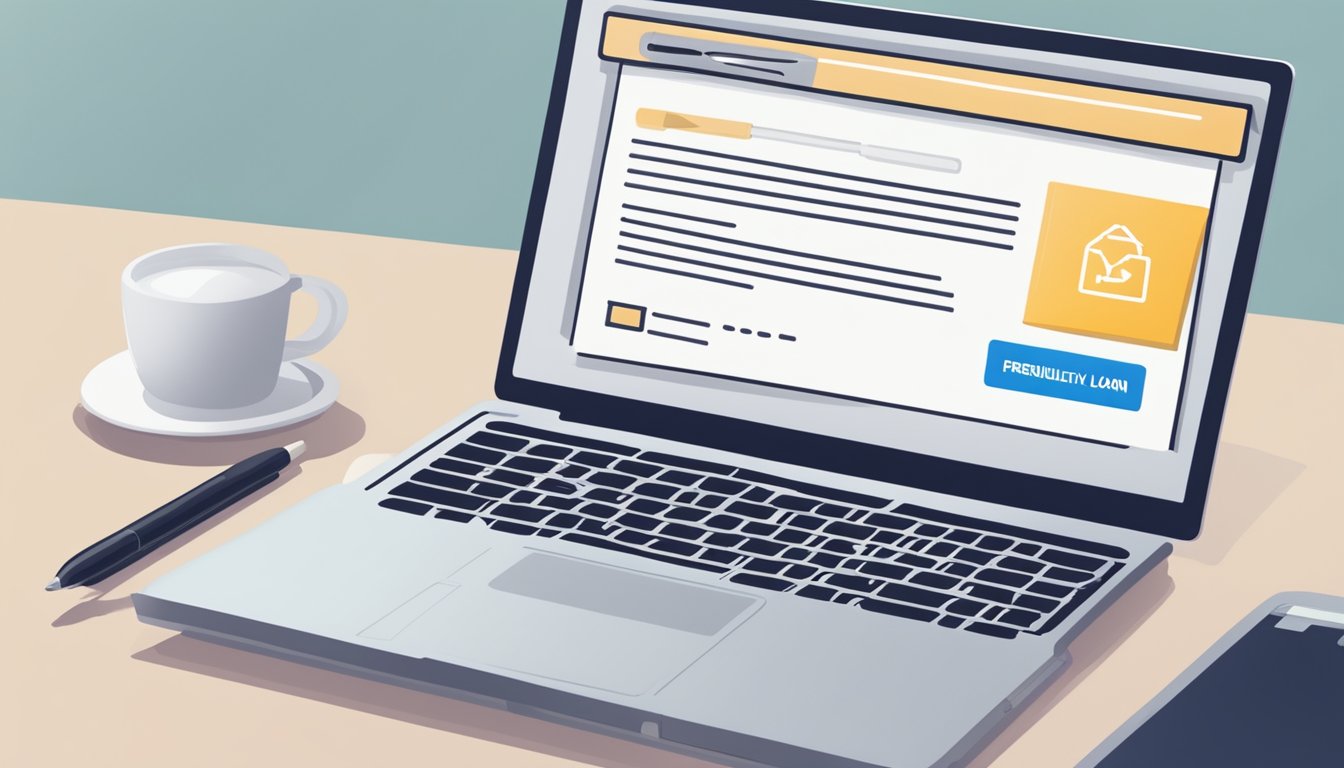When you’re in need of some extra funds, a personal loan can be a great option. Whether you’re looking to consolidate debt, pay for a big purchase, or cover unexpected expenses, a personal loan can help you achieve your financial goals. However, before you can apply for a personal loan, you need to know whether you’re eligible.

Understanding personal loan eligibility is an important part of the borrowing process. Lenders have specific criteria that you need to meet in order to qualify for a loan. These criteria can include things like your credit score, income, and employment status. By checking your eligibility before you apply, you can avoid wasting time and energy on applications that are likely to be rejected.
Fortunately, checking your personal loan eligibility is a relatively simple process. Many lenders offer online tools that allow you to enter your information and get an instant decision. This can be a convenient way to see whether you’re likely to be approved for a loan without having to leave your home. In this article, we’ll take a closer look at personal loan eligibility and how you can check whether you qualify.
Key Takeaways
- Understanding personal loan eligibility is crucial before applying for a personal loan.
- Checking your eligibility can save you time and energy in the borrowing process.
- Many lenders offer online tools to check your eligibility quickly and conveniently.
Understanding Personal Loan Eligibility

When you are looking to take out a personal loan, it is important to understand the eligibility criteria that lenders use to determine whether you are qualified to receive a loan. Here are some key factors that lenders consider when assessing your eligibility for a personal loan.
Key Eligibility Criteria
To be eligible for a personal loan, you must be at least 21 years old and be a Singaporean citizen, Permanent Resident, or foreigner with a valid employment pass. You must also have a stable income and meet the minimum monthly income requirements set by the lender. In addition, you must have a good credit score and a low level of existing debts and obligations.
Documents Required
To apply for a personal loan, you will need to provide certain documents such as your NRIC or passport, employment pass, and Notice of Assessment (NOA) from the Inland Revenue Authority of Singapore (IRAS). You may also need to provide other documents such as bank statements, payslips, and proof of address.
Calculating Your Eligible Loan Amount
Your eligible loan amount is determined by your annual income, expenses, and net monthly income. You can use a personal loan eligibility calculator to estimate your eligible loan amount based on these factors.
Factors Affecting Loan Terms
The terms of your personal loan, such as the interest rate, tenure, and repayment schedule, are affected by various factors such as your credit score, existing debts, and obligations. You should compare loan offers from different lenders to find the most competitive interest rates and terms.
Special Considerations for Foreigners
Foreigners may face additional eligibility criteria such as a higher minimum monthly income requirement or a shorter loan tenure. However, some lenders offer loan products specifically designed for foreigners, so it is important to shop around and compare offers.
The Role of Work Experience and Income Sources
Your work experience and income sources can also affect your eligibility for a personal loan. For example, salaried employees and commission-based earners may have different eligibility criteria and loan terms.
Influence of Credit History
Your credit history is an important factor that lenders consider when assessing your eligibility for a personal loan. A good credit history can help you qualify for a higher loan amount and more competitive interest rates.
Impact of Loan Purpose on Eligibility
The purpose of your personal loan can also affect your eligibility and loan terms. For example, some lenders offer balance transfer loans that allow you to consolidate your existing debts at a lower interest rate.
Understanding Interest and Repayment Schedules
When you take out a personal loan, you will need to pay interest on the loan amount and repay the loan in instalments over a fixed period of time. It is important to understand the interest rate and repayment schedule of your loan to avoid any surprises.
Advantages of Online Eligibility Checks
Many lenders offer online eligibility checks that allow you to check your eligibility for a personal loan without affecting your credit score. This can be a convenient and fast way to find out if you are eligible for a loan.
Loan Enhancements and Top-Ups
Some lenders offer loan enhancements and top-ups that allow you to increase your loan amount or extend your loan tenure. These options can be useful if you need more funds or want to lower your monthly instalments.
Navigating Through Processing Fees
When you apply for a personal loan, you may need to pay a processing fee to cover the cost of processing your loan application. It is important to compare processing fees from different lenders to find the most competitive rates.
Comparing Loan Offers
To find the best personal loan offer, you should compare loan offers from different lenders based on factors such as interest rates, loan amount, and repayment terms. You can use online comparison tools to make this process easier.
Maximising Eligibility for Higher Loan Amounts
To maximise your eligibility for a higher loan amount, you should maintain a good credit score, minimise your existing debts and obligations, and increase your income sources. You can also consider providing collateral or a guarantor to increase your chances of approval.
Overall, understanding personal loan eligibility criteria is essential to finding the best loan offer for your needs. By comparing loan offers, calculating your eligible loan amount, and maintaining a good credit score, you can increase your chances of approval and get the funds you need to achieve your goals.
Applying for a Personal Loan

When you decide to apply for a personal loan, there are a few things you should know to ensure a smooth process. In this section, we will discuss the loan application process, loan approval and disbursement, and post-approval considerations.
The Application Process
The loan application process can be done online, which makes it convenient and straightforward. You will need to provide some personal information, such as your income, employment status, and credit history. The lender will use this information to determine your eligibility for the loan.
Once you have submitted your application, you will receive an instant approval decision. However, this does not mean that you will receive the loan immediately. The lender will need to verify your information and check your credit score before approving the loan.
Loan Approval and Disbursement
If you are approved for the loan, the lender will disburse the funds to your bank account. The time it takes for the funds to be transferred will depend on the lender’s policies and your bank’s processing times.
It is important to read and understand the terms and conditions of the loan agreement before accepting it. You should pay close attention to the interest rate, eligible amount, loan amount, monthly repayment, and any balance transfer options that may be available.
Post-Approval Considerations
After you have received the loan, you should make sure to make the monthly payments on time to avoid any late fees or penalties. If you are having trouble making the payments, you should contact the lender to discuss your options.
You should also be aware that taking out a personal loan will affect your credit score. If you make the payments on time, your credit score will improve. However, if you miss payments or default on the loan, your credit score will be negatively impacted.
In conclusion, applying for a personal loan can be a straightforward process if you understand the loan application process, loan approval and disbursement, and post-approval considerations. By following the terms and conditions of the loan agreement and making the payments on time, you can improve your credit score and achieve your financial goals.
Frequently Asked Questions

What are the criteria for qualifying for a personal loan?
To qualify for a personal loan, you need to meet certain criteria set by the lender. Generally, you need to be at least 21 years old and have a steady income source. You’ll also need to have a good credit score, which indicates your ability to repay the loan. Other factors that lenders may consider include your employment history, debt-to-income ratio, and the purpose of the loan.
Where can I check my eligibility for an instant personal loan?
You can check your eligibility for an instant personal loan on the lender’s website or through a loan comparison website. Most lenders have an online eligibility calculator that you can use to check your eligibility. You’ll need to provide some basic information, such as your income, employment status, and credit score. Based on this information, the calculator will tell you if you’re eligible for a loan and how much you can borrow.
What factors influence my approval for a personal loan?
Several factors can influence your approval for a personal loan, including your credit score, income, employment history, and debt-to-income ratio. Lenders also consider the purpose of the loan and the amount you’re requesting. If you have a good credit score and a steady income, you’re more likely to be approved for a loan. On the other hand, if you have a poor credit score or a high debt-to-income ratio, you may be denied or offered a higher interest rate.
How can I find out if I’m eligible for a personal loan with a specific bank?
To find out if you’re eligible for a personal loan with a specific bank, you can visit the bank’s website or branch and check their eligibility criteria. You can also use a loan comparison website to compare the eligibility criteria of different banks. Keep in mind that each bank has its own set of eligibility criteria, so you may be eligible for a loan with one bank but not with another.
What documents do I need to provide for a personal loan eligibility check?
To check your eligibility for a personal loan, you may need to provide some basic documents, such as your ID proof, address proof, income proof, and bank statements. The specific documents required may vary depending on the lender and the loan amount you’re requesting. You can check the lender’s website or contact their customer support for more information.
Can I check my personal loan eligibility without impacting my credit score?
Yes, you can check your personal loan eligibility without impacting your credit score. Most lenders have an online eligibility calculator that uses a soft credit check to determine your eligibility. A soft credit check doesn’t affect your credit score, so you can check your eligibility with multiple lenders without worrying about damaging your credit score.




